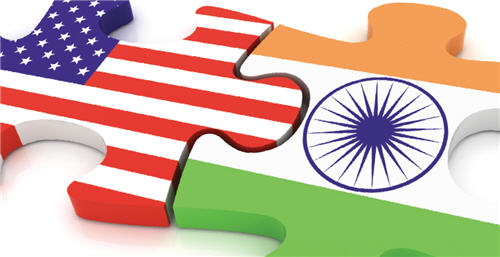
On November 9, President Barack Obama will address India’s Joint Session of Parliament. It was ten years ago that the last sitting U.S. president spoke before the Members of the Lok Sabha and Rajya Sabha. On that occasion President Clinton drew hearty applause when he highlighted the strength of India’s representative government: “At every election,” he noted, “those who possess the least cherish their vote the most.” This commitment to democracy – a commitment to principles “over mere pragmatism,” as Prime Minister Manmohan Singh is known to say – serves as the most fundamental bulwark of the partnership between the world’s oldest and its largest democracy. Unfortunately, this commitment is also what threatens to keep us apart.
President Barack Obama’s visit, though long-awaited, will be greeted with muted expectations. There will be no signing of a Logistics Support Agreement. There will be no agreement on devaluing currencies. And there will be no meeting of the minds in regards to Pakistan. Instead, quiet murmurings of politicians and bureaucrats reminiscing about the “good ol’ days” of President Bush have steadily grown louder in South Block. But the problem is not a lack of respect or a lack of recognition of the importance of our “strategic partnership.” Much more simply, what impedes the development of our relationship is the nature of our democratic politics. Entrenched special interests, populist impulses and, most significantly, the pressing needs of our domestic constituencies during this economic recession have sidelined the partnership building process.
Indian commentators like to credit the Bush Administration for delivering a civil-nuclear deal. Yes, President Bush made it a priority to push an ambitious 123-agreement through the U.S. Congress – and he expended significant political capital in doing so, perhaps even to the detriment of his other policies. And, yes, Prime Minister Singh reciprocated by bringing the contentious agreement to Parliament, where it, as well as Singh’s Congress Party, survived a no-confidence vote by slim margins. But some on this side of the Pacific see the deal as wasted effort. Not only did the Indians fail in passing a robust liability agreement that would have facilitated the sale of American nuclear reactors, but that failure has been symptomatic of recent, seemingly anti-American rhetoric coming out of Delhi. What happened?
The nature of democratic politics. While Indian commentators are quick to point to President Obama’s lack of attention to India – discounting, of course, the President’s hosting Prime Minister Singh for his first state dinner – they also discount the lack of progress made within their own borders. Take the liability agreement: the original agreement, as supported by the Nuclear Power Corporation of India and major Indian business associations, was intended to channel exclusive liability to operators of nuclear power plants and to establish a sole remedy for adjudicating claims in case of accident. Though recognized by many American businesses and Members of Congress as a fundamental condition of the civil-nuclear deal, the agreement was not fulfilled because of the fractured makeup of India’s Congress Party. It simply was not worth ruffling the feathers of the Left Parties on an international issue, when their votes would be needed for domestic concerns. Ultimately, the Party valued the need to reclaim electoral domination over mere foreign policy achievements.
For the United States and India to strengthen their bilateral relationship, both countries must make it a priority to do so. President Obama has great respect for Prime Minister Singh. Here’s hoping that that’s enough for both to expend some political capital, overcome entrenched special interests, and make some more “principled” decisions.
Jasmeet K. Ahuja is JD candidate at Stanford Law School. Previously, she worked on South Asia policy in the House Committee on Foreign Affairs and in the Departments of Defense and State. This article is part of the Atlantic Council web forum "Obama’s First Tour of India."
Image: usa-india-puzzle_0.jpg
